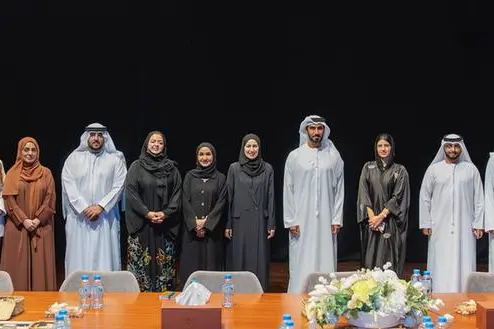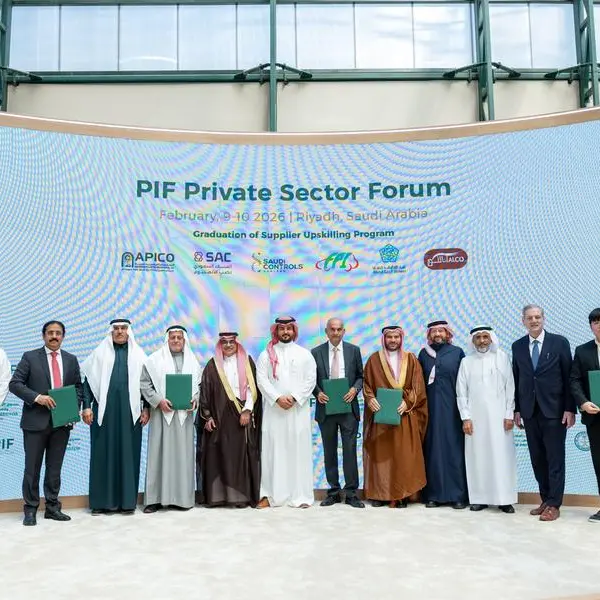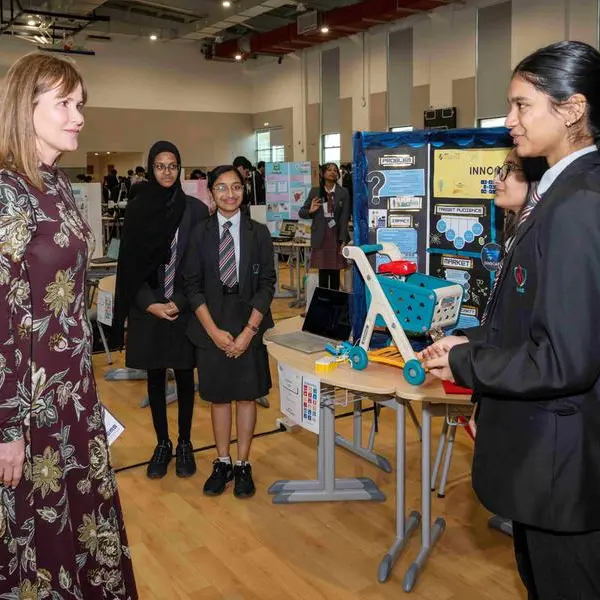PHOTO
- H.E. Mubarak Al Nakhi: “We seek to lay the groundwork for a more connected and impactful future through co-creation, verification, and recognition frameworks that align with national priorities and Sustainable Development Goals”
- Meeting emphasised private sector engagement and the launch of new evaluation tools, including the Impact Index.
Dubai, MAJRA – National CSR Fund held its second Policies and Strategies Committee meeting for 2025 to explore ways to advance the UAE’s sustainable development goals through enhanced cross-sector collaboration and the rollout of new tools and frameworks to drive national impact.
The meeting was Chaired by H.E Mubarak Al Nakhi, Undersecretary of the Ministry of Culture, and Head of the Policies and Strategies Committee, and attended by H.E. Hanan Ahli, Managing Director of the Federal Competitiveness and Statistics Centre, and the Deputy of the Policies and Strategies Committee; Bedour Saeed Al Raqbani, Board Member of American University of Sharjah; H.E. Abdulaziz Al Jaziri, Deputy CEO of Dubai Future Foundation and Sarah Shaw, CEO of Majra – National CSR Fund.
The meeting reviewed key ongoing initiatives and approved several tools designed to streamline sustainable project qualification and verification processes. It also placed a major emphasis on increasing private sector engagement in the fund's initiatives, validating project assessment mechanisms, and introducing new initiatives such as the Impact Index. It also addressed the ‘Transformational Projects Framework’, which is being developed by the Emirati committees for social responsibility and sustainability, chaired by the chambers of commerce and industry in each emirate. The strategy formulated as a part of the Impact Retreat held in November 2024 was also reviewed, and strategic initiatives aligning with the UAE's vision to enhance social sustainability, were launched.
H.E. Mubarak Al Nakhi said, “Inspired by the insightful vision of the UAE's wise leadership and in accordance with their forward-looking directives, we are creating a roadmap to build a more sustainable and prosperous future by strengthening the private sector's corporate social responsibility framework. We also hope to enhance sustainable impact and expand the participation of private sector institutions in light of global changes and best international practices, further building upon the achievements of Majra’s key initiatives like ‘Impact Seal’, ‘MAJRA Council’, and ‘Impact Index’.
Sarah Shaw, CEO of Majra, said: “Majra is responsible for providing the necessary frameworks and enablers to enhance the contribution of the private sector in shaping the UAE’s sustainable future, while embedding social responsibility and sustainable impact as cornerstones of the institutional work system. Furthermore, we remain steadfast in our efforts to establish a robust foundation for collaborations, and sustainable impact, by supporting the approved projects and activating the reference frameworks specified under the impact index.”
The committee further reviewed updates to the Sustainable Impact Challenge, including the integration of the Majra Entity Portal and the launch of new award categories within the challenge. These updates aim at expanding outreach and encouraging broader participation from businesses and organisations across the UAE in this challenge, which was launched during the fourth edition of Investopia 2025.
The meeting also reviewed the roadmap of the Impact Index, a national benchmarking tool designed to measure CSR, ESG, and sustainability performance in the private sector. It also facilitates data collection, in line with national and international frameworks, such as the SDGs, Dow Jones Sustainability Index, and MSCI. Currently, Majra is preparing the first report, set to be released in early 2026, in collaboration with the Federal Competitiveness and Statistics Centre, as well as other international organisations.
At the end of the meeting, committee members reaffirmed their commitment to advancing Majra’s strategic vision by endorsing mechanisms that promote transparency, inclusivity, and long-term impact across all initiatives and programmes.




















